The Danish Union of Journalists has become one of the National Union of Journalists of Ukraine’s (NUJU) most reliable partners in providing emergency assistance to affected media workers. Over the past year, 33 journalists whose homes and newsrooms were destroyed by russian attacks have received support.
“We don’t just monitor, we help.”
On April 16, 2025, a russian drone almost destroyed the house of journalist Iryna Dmytriieva in Dnipro. On July 31, a missile strike destroyed Olha Stadnychenko’s apartment in Kramatorsk. On September 20, a single massive attack on the Dnipro destroyed or damaged the homes of three media workers at once – Oleksandr Pronsky, Serhiy Chernyavsky, and Vladislav Romanov. These are just a few stories from the list of Ukrainian media workers who have recently received emergency assistance from NUJU thanks to the support of Danish colleagues.
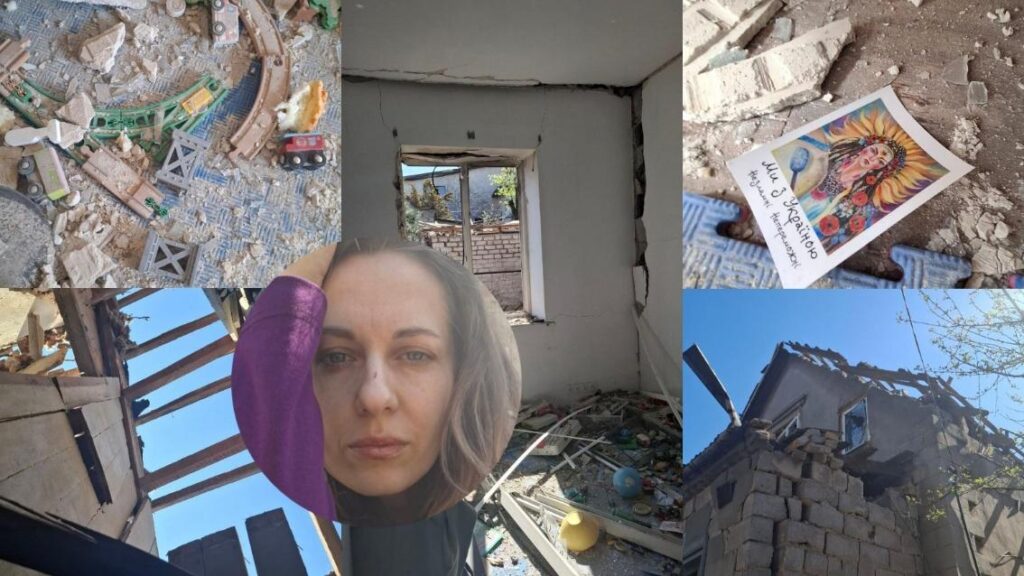
Thanks to donations from the Danish Union of Journalists, the NUJU was able to provide emergency assistance to over 100 Ukrainian media workers. In March and April 2025, it continued the work of the Journalists’ Solidarity Centers (JSC) when UNESCO funding ceased.
In the last year, from October 2024 to September 2025, a total of 33 journalists from various regions of Ukraine received emergency financial assistance. Their stories are a chronicle of how the war destroys the lives of media workers every day, who continue to work despite everything.
On May 24, 2025, Volodymyr Mzhelskyi’s house near Kyiv turned into a pile of rubble after a russian strike. In Zaporizhzhia, on September 21, a guided bomb attack damaged the house of Kseniya Kleshchenko. On September 28, a rocket strike destroyed the newsroom where Natalia Stina works.
September 30 was a black day for the famous photojournalist from Dnipro, Mykola Koshelev – an attack by the attack drones practically destroyed his apartment, and the journalist himself was physically injured.
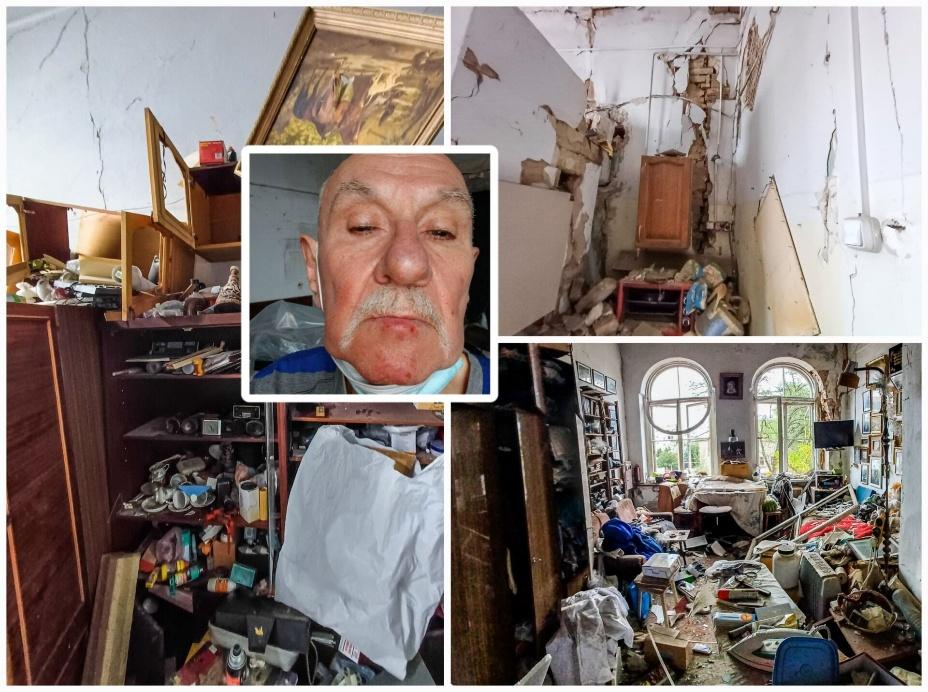
The situation in front-line cities became especially dramatic. In March 2025, due to massive shelling and bombing, four journalists had to be relocated at once: Oleksandr Motsnyi, Oksana Shevel, Olha Kyslenko, and Inna Zahorulko. A similar fate befell the newsroom in Mezhova in August, as Yevhen Khrypun, Snezhana Salivon, Nataliya Vozniuk, and Valentyna Ostapchuk were forced to relocate.
“International journalistic solidarity is not an abstract concept, but concrete assistance to our colleagues in the most difficult moments of their lives,” emphasizes Nataliya Nazarova, the coordinator of the NUJU’s JSC in Dnipro. “We do not just monitor hostile attacks on journalists and media. When one of our colleagues loses their home or is injured, we provide emergency financial assistance promptly. It is the support of our Danish colleagues that enables us to do this. Each such assistance is a feeling that you are not alone with your trouble, that the professional community supports you.”
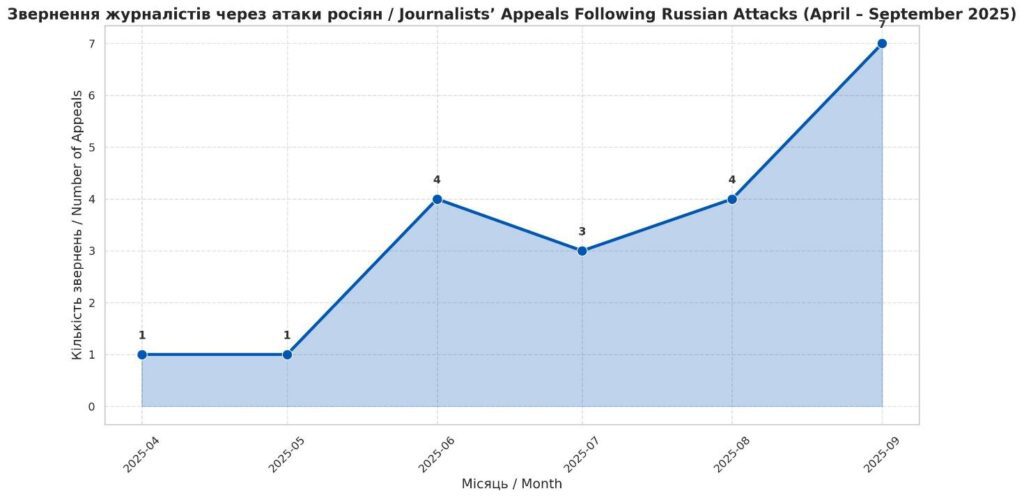
Professionals who do not give up
On April 27, 2025, at the Congress of the Danish Union of Journalists, approximately 300 delegates from all media outlets in Denmark greeted NUJU President Sergiy Tomilenko with a standing ovation as a sign of solidarity with Ukrainian journalists.
In his speech, Sergiy Tomilenko told the stories of his colleagues from different parts of Ukraine, which impressed the entire audience.
For example, Anatolii Bilonozhko, the editor of Mykolayiv News, works in inhuman conditions. Their newsroom is practically destroyed, and the windows are blocked with wooden boards. But the worst thing is that Mykolaiv has been living without drinking water for three years. “Instead of working on the news, we spend hours looking for drinking water and carrying it home. Salt water from the tap destroys pipes and plumbing; taps have to be changed every year,” Sergiy Tomilenko quoted Anatolii Bilonozhko. Despite such trials, the editorial staff of Mykolayiv News did not miss a single issue of the newspaper this year.
A month before the speech at the Congress, Sergiy Tomilenko, along with Svitlana Karpenko, the editor of the front-line Trudova Slava, traveled to the settlement of Orikhiv, which is only four kilometers from the front line. They carried a fresh issue of the newspaper along with bread delivered by Zaporizhzhia rescuers. “You should have seen how people’s faces lit up when they received both bread and a newspaper – as if they were two different types of food: for the body and for the mind,” Sergiy Tomilenko recalled, speaking in Copenhagen.
New leadership – support remains!
A few days after this speech, on April 29, the first official meeting with the NUJU chairperson of the newly elected leadership of the Danish Union of Journalists – President Allan Boye Thulstrup and Vice President Lise Møller Schilder – took place. It is symbolic that this was their first international meeting after their election. “This demonstrates how important solidarity with Ukrainian journalists is for Danish colleagues,” noted Sergiy Tomilenko.
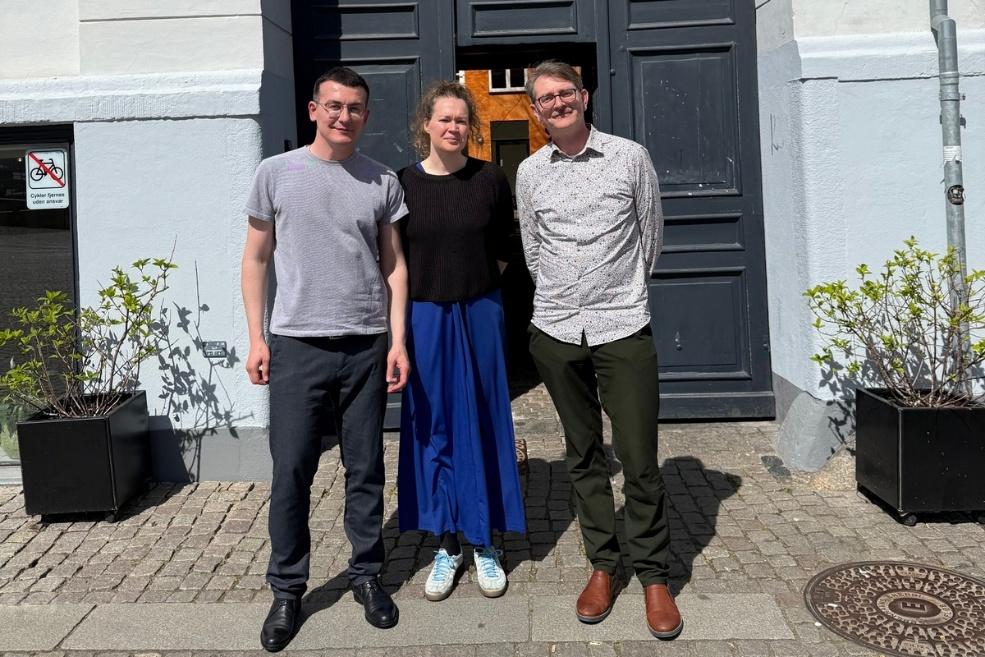
At the Congress, the NUJU President presented the Danish Union of Journalists with the Special Honorary Award of the NUJU and presented the flag of Ukraine, signed by journalists from Zaporizhzhia, Dnipro, and Kyiv—a symbol of gratitude and a testament to their joint struggle for the values of free journalism.
And today, the Danish Union of Journalists remains one of the most consistent partners of the NUJU. Its donations support the Security Fund of the International Federation of Journalists and the activities of the network of JSCs.
“Keep Ukraine in your stories, in your reports, in your hearts!” Sergiy Tomilenko addressed his Danish colleagues. “Do not let the world forget about our suffering and our struggle. Your support today makes us stronger tomorrow. Because when russian propaganda is constantly at work, we vitally need the attention of free media.”
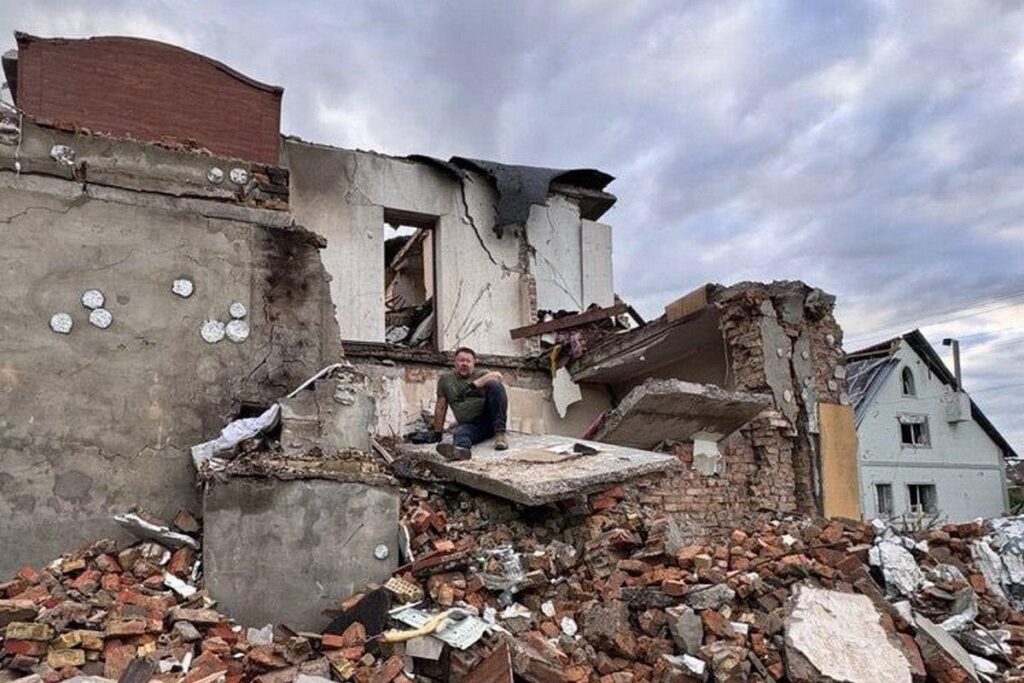
NUJU Information Service

 THE NATIONAL UNION OF
JOURNALISTS OF UKRAINE
THE NATIONAL UNION OF
JOURNALISTS OF UKRAINE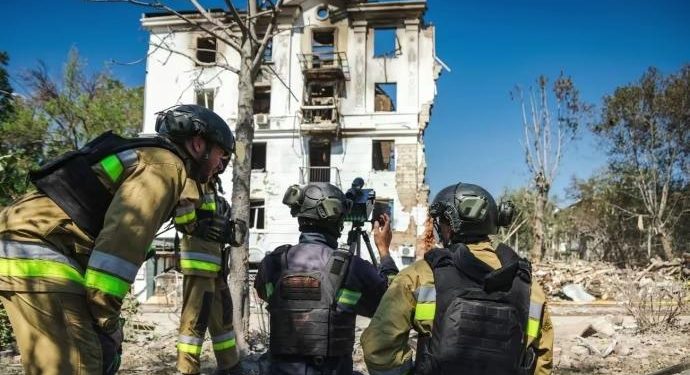
















Discussion about this post